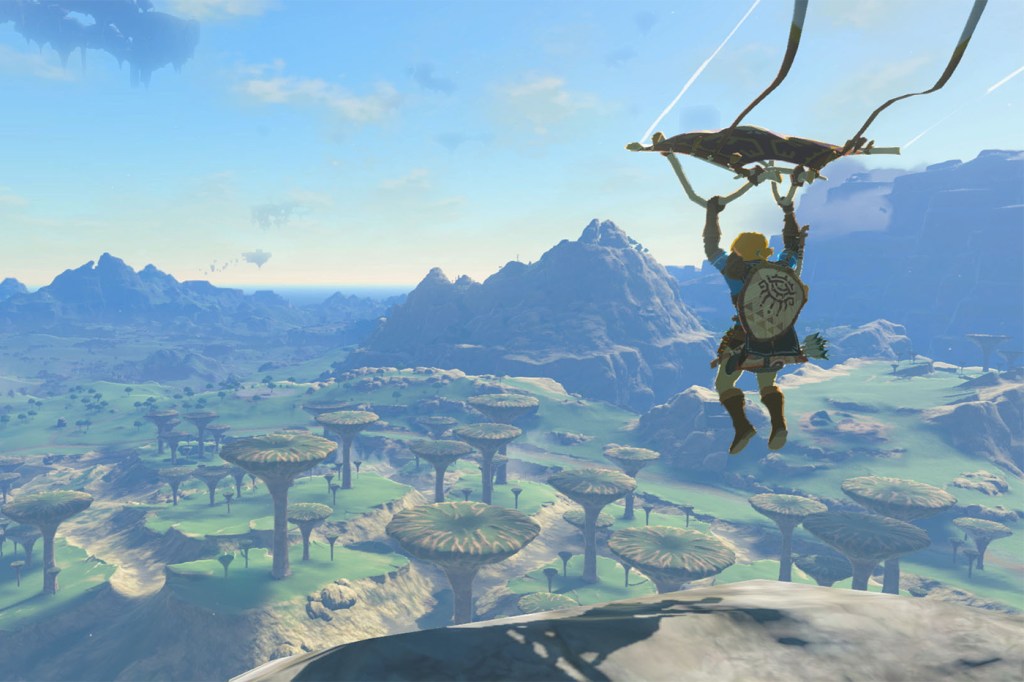Why ‘Zelda: Tears of the Kingdom’ selling 10 million copies in three days matters for the games industry

“The Legend of Zelda: Tears of the Kingdom,” the latest entry in Nintendo’s long-running video game series, is not just the talk of the proverbial town. It’s the talk of every town.
“Tears of the Kingdom” sold 10 million copies in its first three days, quickly becoming the fastest selling game in Nintendo history. Although Nintendo has yet to reveal revenue numbers, the first three days of sales would amount to, at minimum, $700 million based on the $70 game price (although there are more expensive pricing tiers available as well). It will likely become the best selling game of the year and could become one of the best selling games of the last few years.
The critical and commercial success of the sequel to “Breath of the Wild,” which was proclaimed a masterpiece when it was released in 2017, is unsurprising in many ways. The Nintendo Switch is one of the most widely adopted gaming consoles, with 130 million sold worldwide, according to Nintendo.
But the reason people have flocked to “Tears of the Kingdom” is about more than just the success of “Breath of the Wild.” The game’s emphasis on freedom and creativity says a lot about what players want out of video games––and it has plenty to teach the games industry, say game design experts at Northeastern University. It turns out players just want to play.
“Letting you go forth and paint this world in your narrative, in your vision, and approach it in your way without hand holding you completely, that resonates with people,” says Fox Zarow, assistant teaching professor of game design at Northeastern.
Like every Zelda game, players are put in the shoes of Link, a pointy eared, green tunic wearing warrior who must rescue the kingdom of Hyrule and Princess Zelda from the villainous Ganon. And like “Breath of the Wild,” “Tears of the Kingdom” provides a massive, freely explorable open world version of that formula. It also gives players a new set of tools that greatly expand what they can do in creative––and often ridiculous––ways.
Players can now build bridges, boats, cars and even laser shooting robots by gluing items in the environment together. They can fuse weapons with horns taken from monsters or strap an explosive barrel to their shield. If there’s an obstacle to overcome, there’s more than likely not just one way to solve it.
In that way, “Tears of the Kingdom” is offering players what they’ve always wanted out of open world games: freedom. There are still limitations, like in any game. But Chris Barney, associate teaching professor of game design at Northeastern, says “Tears of the Kingdom” comes closest to offering the “do it your way” philosophy that so-called open world games have been trying to offer for decades.
“Players running into a game where not only can you do [solve a puzzle] that way but there’s a bazillion other ways you can do it and it’s not that you’re limited to what [the designers] want but they’ve given you all the tools and they all work more than you can even imagine, is that feeling of ‘Finally, I can do this thing that I’ve had denied to me for all of my gaming career,” Barney says.
What’s more impressive than how flexible the game’s systems are, is how accessible it is, says Brandon Sichling, an associate teaching professor of game design at Northeastern. “Tears of the Kingdom” is far from the first open world game, a kind of expansive experience with dozens of hours of content that has become common in the industry. But it’s one of the first games at this scale to offer this level of freedom to players, all without it feeling too overwhelming.
“The game is playable even if you don’t want to engage with all of it all the time, but still none of those things feel half-baked,” Sichling says.
The level of creativity and flexibility the game gives players with its tools all feeds back into whatever fantasy the player wants to inhabit. That could mean becoming a powerful warrior who will rescue Hyrule. Or it could mean taming wild horses and playing as “this weird little homesteader who’s really good with a sword for some reason,” Sichling says.
Not every developer can do what Nintendo has done with “Tears of the Kingdom”––and they don’t need to. But Zarow hopes to see other developers learn from Nintendo’s underlying philosophy: trust in players, developers and the power of play.
“They trust their players and trust that ‘We have crafted something for you, and you’re really going to like it and make it your own,’” Zarow says. “I hope that the takeaways are retaining your staff, taking your time and trusting in the relationship you’ve built with your players.”
Cody Mello-Klein is a Northeastern Global News reporter. Email him at c.mello-klein@northeastern.edu. Follow him on Twitter @Proelectioneer.






